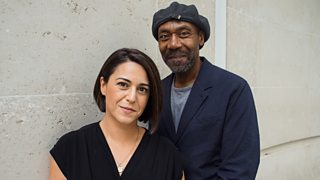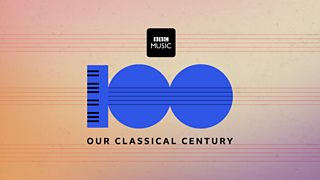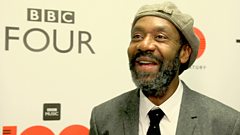
Ludwig van Beethoven: Symphony No 3, "Eroica"
An archive recording by the West-Eastern Divan Orchestra with conductor Daniel Barenboim.
In August 1999, a group of young musicians came together in Weimar, Germany, for an orchestra workshop. The ensemble was made up of young musicians aged between 14 and 25 from one of the world’s worst conflict zones: the Middle East. They came from from Israel, from Palestine and Jordan, from Egypt and Syria, from Tunisia and Lebanon. Their conductor was Daniel Barenboim and they were coached by the cellist Yo-Yo Ma.
The workshop was the brainchild of Barenboim, an Argentinian-Israeli Jew, and the Palestinian-born cultural critic and philosopher Edward Said, who was himself an accomplished musician and writer on music. The intense friendship between the two - who should have been on opposite sides of the political divide - had already resulted in Barenboim playing a solo piano concert on the West Bank. Neither Said and Barenboim were naive. But both felt something was to be gained by bringing young people from this conflict zone together with the common purpose of music. "In these times," said Barenboim, "we can’t afford the luxury of pessimism".
During the day, the young musicians (who, in ordinary life, would never have met each other, let alone made music together) would rehearse intensely under the guidance of Barenboim and musicians from the Chicago Symphony, the Berlin Philharmonic and the Berlin Staatskapelle orchestras. In the evenings, Said and Barenboim would lead discussions: conversations about life, music and, of course, politics. Arguing was not only allowed, it was encouraged. "It would be artificial not to talk about politics, as it’s such a central part of our lives," said one of the young musicians. In the words of Barenboim: "The only way out of this tragedy, the only way to avoid more tragedy and horror, is to take advantage of the hopelessness of the situation and force everybody to talk to one another."
Edward Said named the orchestra after the West-Eastern Divan, a collection of poems by Goethe inspired by the medieval Persian poet Hafez, and by verses from the Quran. "To God belongs the Orient, to God belongs the Occident, the northern and the southern lands, resting tranquil in his hands" is a typical verse that shows the strong influences of both. Edward Said’s most famous book, Orientalism, railed against the patronizing fetishisation of Oriental cultures by the West. But Said believed that Goethe, in the Divan, was genuinely opening himself up to the inspiration of the Arab world.
The West-Eastern Divan Orchestra’s workshop was intended as a one-off. But it soon became apparent that this project had to continue. 20 years on, the orchestra is well-established and tours the major concert halls and festivals of the world.
One concert, more than any other, perhaps symbolises what this orchestra is all about. It took place in Ramallah - the de facto capital of the Palestinian authority on the West Bank - in the summer of 2005, a time when there were very real security risks for the young musicians. In a documentary film of the trip, Barenboim is seen telling them at the airport that they have one last chance to back out, he would completely understand. But most of them went.
The existence of the West-Eastern Divan Orchestra has not stopped the conflict in the Middle East. But it has served as a symbol, a defiant message, that something else is possible. It has shone a light on the best of what human beings can be.
This is one of 100 significant musical moments explored by Βι¶ΉΤΌΕΔ Radio 3’s Essential Classics as part of Our Classical Century, a Βι¶ΉΤΌΕΔ season celebrating a momentous 100 years in music from 1918 to 2018. Visit bbc.co.uk/ourclassicalcentury to watch and listen to all programmes in the season.
This is an archive recording by the West-Eastern Divan Orchestra with conductor Daniel Barenboim.
Duration:
This clip is from
Featured in...
![]()
The music of Our Classical Century—Our Classical Century
100 recordings to celebrate 100 years of exciting, inspirational, rule-busting music.
More clips from Our Classical Century
-
![]()
Step outside your musical tribe
Duration: 02:49



